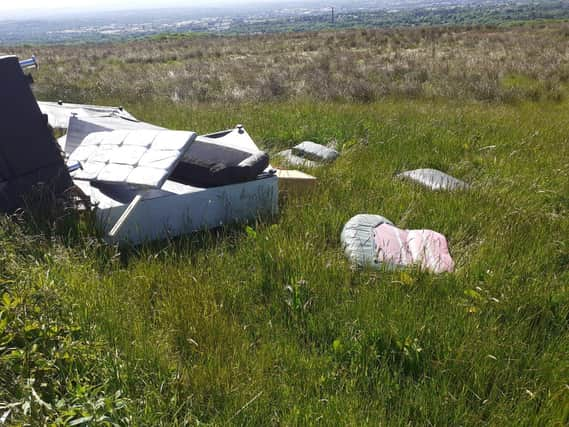'Huge increase' in flytipping in the countryside during lockdown


More than 1,000 of the Woodland Trust's manages sites across the UK have stayed open to give people access to nature during the pandemic.
But an increase in visitors has also seen a massive surge in litter, flytipping and irresponsible and damaging behaviour, the conservation charity has said.
Advertisement
Hide AdAdvertisement
Hide AdThe cost of clearing up the damage for the year is projected to be around £134,000, at a time when conservation charities have faced financial strain due to the lockdown.
And discarded rubbish can pose a threat to nature.
Plastics and metals do not naturally decompose and can persist in the natural environment for decades, changing the soil composition, while chemicals from more hazardous waste can leak into water courses.
Animals can suffocate in discarded plastic bags, get entangled in plastic can holders, and be injured by broken glass or get trapped in jars.
Straying off designated trails can damage delicate ancient environments which take many years to recover.
Advertisement
Hide AdAdvertisement
Hide AdAt some woodland sites, 'wild campers' have chopped down trees, built fire pits, left drugs paraphernalia behind, and even removed protected newts from ponds to take back to their own gardens.
Skipton Castle Woods in North Yorkshire has been one of the problem spots.
Woodland Trust director of operations Norman Starks said: “It is great that people are getting outside and visiting our sites to enjoy the benefits of nature, which are so important in these difficult times, but we have seen a huge increase in mess.
“The vast majority of people visit our sites respectfully but we have seen an increase in people misusing sites, for example setting up camps, chopping down trees, and other damaging activities such as mountain biking off designated trails.
Advertisement
Hide AdAdvertisement
Hide Ad“These are very delicate habitats; in some cases they are hundreds of years old. We need the public to join us in helping to continue to protect these environments.”
The Trust said it has spent more than £1 million cleaning up mess and flytipping across its woods over the last seven years, which is money that could be spent on planting and protecting woodland environments.
Flytipping has also been an issue away from Woodland Trust land. Areas such as Thomason Foss and Cod Beck Reservoir in the North York Moors National Park. Burnsall in the Yorkshire Dales National Park, Richmond Falls on the River Swale and the pebble beaches at Ilkley have seen large groups congregating for lockdown parties who have left litter behind, including barbecues, clothing, towels, nappies and inflatable toys. Both National Parks have reported issues with wild camping in prohibited areas of private land.